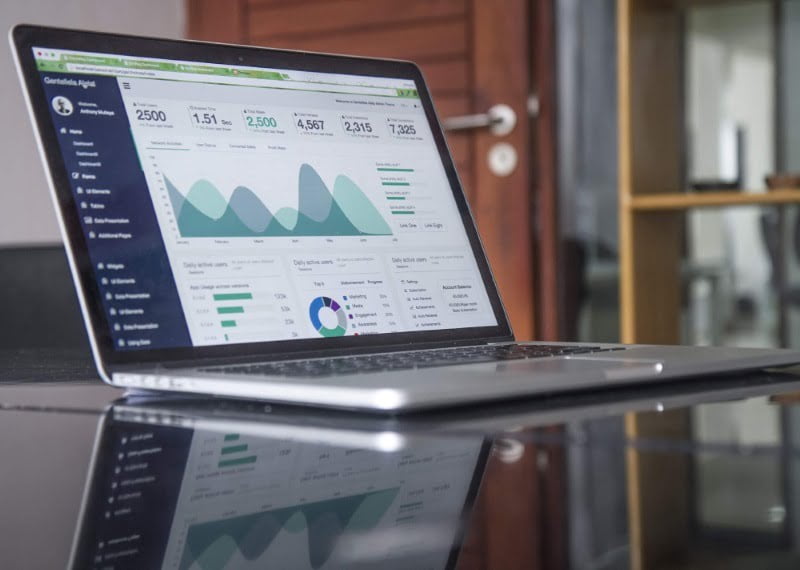This content was created by the Data Sharing Coalition, one of the founding partners of the CoE-DSC.
The Data Sharing Coalition supports organisations with realising use cases at scale to exploit value potential from data sharing and helps organisations to create required trust mechanisms to share data trusted and secure. In our blog section ‘Q&A with’, you learn more about our participants and their thoughts, vision and ideas about data sharing. Roderick Rodenburg, Founder of Roseman Labs, shares his thoughts.
1. Could you briefly introduce your organisation?
Roseman Labs is a start-up that builds confidential computing software. We offer a decentralised data analytics solution that allows organisations to analyse data across multiple parties without the need for these parties to actually share their data. We bring the algorithm to the data instead of centralising data for analysis. This allows for totally new applications for which it is undesired to share the sensitive data due to privacy or trade regulations.
Our software is used by a wide range of institutions and organisations. The Dutch government, for example, uses it to improve cyber risk information sharing. Utility companies use it to analyse data from smart meters for network optimisation and a start-up uses it to perform benchmark studies to reduce gender pay gaps.
Our solution is built on a technology called secure multi-party computation (MPC), which is a well-known privacy technology. Our generic MPC engine makes this technology practically applicable which allows companies to unlock the value of sensitive data without jeopardising people’s privacy.
2. To what extent is your organisation involved in data sharing (within and across sectors)?
Our company is all about information sharing and we change the paradigm around data sharing. We can offer a very elegant solution whenever sensitive data is involved. People are reluctant to share sensitive data – with good reason. Using privacy technology, you can unlock the value of data sharing without sharing the data itself. This propels industry collaboration. By unlocking sensitive data, new applications can be built for healthcare, the energy transition and many other industry verticals.
What kind of new applications? Well, if the current law says you may not share data because it is privacy-sensitive information, you have to adhere to legal agreements. Our software enables you to perform analytics across various data sources as if the data is aggregated and stored in a central location. An example is the smart meter in your home. The Energy law (Energiewet) states that data is not allowed to leave the meter. We are working on a project with a grid operator in which we send a piece of software to your meter after your permission. Multiple meters in a street can than run a computation together. The outcomes of these computations can never be traced back to a single household or a person. The network operator uses the results to balance the grid load. They can for example determine whether there is room in the street to install additional charging stations or solar panels. With such applications, you can now use data that you could not access before. Data remains in its environment and can participate in a joint computation across other data silos. This way, sensitive data like personal or competitive information can be used in a trusted and privacy-preserving manner.
3. Why is or should sharing data be important for your industry or domain?
If data is the new gold, data sharing allows you to make beautiful jewellery. The combined value of data is much higher than the sum of the individual datasets. However, maintaining control over one’s data becomes more and more a prerequisite for complying with regulations such as GDPR.
Sharing data creates added value. Combining the data that is in one place with another creates completely new insights. Roseman Labs ensures this is also possible for very privacy-sensitive data. 90% of our use cases are related to collaboration. Take for instance the healthcare industry. Some medical data is so sensitive that, for example, a PhD researcher cannot access that data. (S)he would need to go through legal agreements to make sure that data can’t be leaked. With our solution, they can easily and safely access this data. We are working on a project in which multiple healthcare providers work on researching healthcare data across the various organisations. Researchers don’t receive the actual patient records, but they can deploy their computations on the data without having access to the data itself. The result is that they are able to optimise treatment methods much faster. Furthermore, this way of working reduces the risk of data leakage and is faster to set up since legal measures are reduced tremendously.
We all have a better understanding of the value that data sharing delivers, but the need to protect people’s privacy also becomes a bigger issue over time.
4. What are the most promising data sharing developments and trends you see in your sector?
Tension is increasing between the need for data sharing on one hand and restrictions imposed by regulations on the other hand. We all have a better understanding of the value that data sharing delivers, but the need to protect people’s privacy also becomes a bigger issue over time. Solutions in the privacy technology domain are developing rapidly and various solutions will mature in the upcoming years.
An emerging trend in the Netherlands and in the European Union is privacy awareness and data sovereignty. Consumers and companies must maintain control over their data. It’s just not that concrete yet, no one knows how to facilitate this, but the concept that you stay in control of your own data is appealing. Data ownership is lost at the moment you send data to someone else. Data sovereignty is a trend that is fuelled by decentralised technologies. Decentralised means: you have your data, I have my data, but we can independently give permission to someone else to use our data. We can also deny someone permission again whenever we want to. Using, in our case, decentralised analytics, the data remains where it is and the algorithm is being shared. This however is a paradigm shift, we are used to sharing data in order to share information or knowledge. You can open up your data to others without giving it away. There are now all kinds of techniques and technologies that ensure that this is possible, Roseman Labs provides one of them. We break down the algorithm and send it to the data source. The owner of that data source must approve that his/her data will be included in the calculation of the algorithm. If the owner gives permission, the data will be included in the calculation, but the owner can also withdraw this permission. It’s the opposite of what big tech companies like Google and Facebook do, they try to bring everyone’s data to one place.
5. How do you see the future of data sharing, and what steps are you currently taking in that direction?
There are currently a lot of legal and organisational constraints that make data sharing more difficult, so people quickly start talking about technology because this is very tangible. But I think data sharing across sectors will become mainstream rapidly and will push the need for adequate solutions (both in terms of generic agreements and software) that can overcome barriers posed by legal or organisational constraints. We are one solution that provides a lot of value when it comes to sharing sensitive information, but more solutions will arise that will make it easier, more transparent, manageable, and safe to share data. I think we will quickly move to much smarter systems with AI. You don’t even have to think about how to access the data, you can simply and securely exchange it.
6. Why are you participating in the Data Sharing Coalition?
The privacy technology market is only just emerging and we like to tell the story and the value it brings. The Data Sharing Coalition offers an excellent platform to talk to and help industry professionals that are dealing with the challenges. We are also participating to learn from front runners in the data sharing field. Many inspiring companies across sectors provide an excellent environment for new things to happen.




